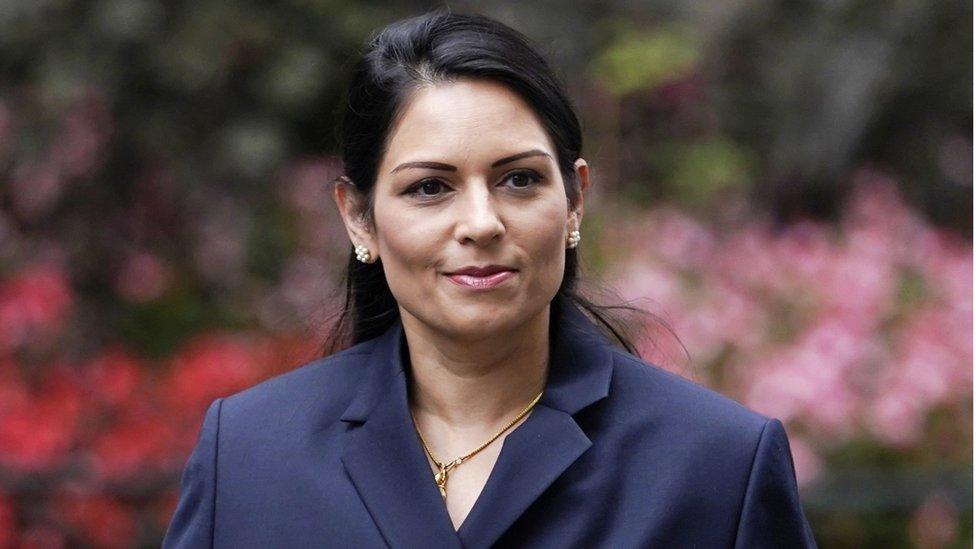Priti Patel: Ministers have duty to stop bullying, says Johnson
- Published

Ministers have a duty to ensure "there is no place for bullying" in government workplaces, Boris Johnson has said.
The prime minister has written to all ministers, external and top civil servants to remind them of the importance of mutual respect and trust in their dealings.
It follows criticism of his decision to stand by Home Secretary Priti Patel after an inquiry found she had shouted and sworn at officials.
He said Ms Patel had apologised and the matter was now closed.
Ms Patel has said she never meant to upset anyone she worked with and if she had done so it was unintentional.
The PM overruled his own adviser on ministerial standards on Friday, who found Ms Patel's behaviour towards colleagues could be construed as bullying in terms of its impact and represented a breach of the ministerial code,
Sir Alex Allan resigned after the prime minister said he had reached a different view and believed Ms Patel had not broken the rules governing the conduct of ministers.
In a short written statement, external to the Commons, the PM said he was "reassured that the home secretary is sorry for inadvertently upsetting those with whom she was working".
"I have noted Sir Alex's advice that many of the concerns now raised were not raised at the time and that the Home Secretary was unaware of the impact that she had," he said.
While he said that working relationships at the Home Office had improved, he acknowledged the damage that the episode, which has led to the former top civil servant at the Home Office suing the government, had done.
'Undermining trust'
The PM said he had stressed in a letter to ministers and officials running departments the "paramount importance of relationships of mutual trust and respect between politicians and their officials".
"This includes keeping internal conversations private, feeling able to speak freely and honestly about matters of state and to speak constructively about things that are not working so that we can fix them together promptly.
He added: "I am clear that there is a particular duty on ministers and permanent secretaries to create jointly across government a culture which is professional, respectful, focused and ambitious for change and in which there is no place for bullying."
Opposition parties have warned the PM's decision to keep Ms Patel in her job undermines trust in government as well as efforts to stamp out bullying.
Green Party MP Caroline Lucas said the decision sent the wrong message to the public when they were being asked to show solidarity with others over tough Covid restrictions.
"The government is just throwing trust away by making up the rules as it goes along," she told the BBC's Politics Live. "It is one rule for government ministers and advisers and another rule for everybody else.
"You can bully people and get away with it if you are a government minister and nobody cares but it really matters because it sends a signal to the rest of the country that we are not all in this together" she said.
What is the ministerial code?
The ministerial code, external is a government document setting out "expected standards" of behaviour in office, which include "consideration and respect" for civil servants and other colleagues.
It says "harassing, bullying or other inappropriate or discriminating behaviour" will not be tolerated.
It says ministers are "personally responsible" for how they act - and that they can stay in office "for so long as they retain the confidence of the prime minister".
The code is not legally binding and the PM retains the ultimate authority in matters relating to the code - but, typically, if a minister breaches the code, they are expected to resign.